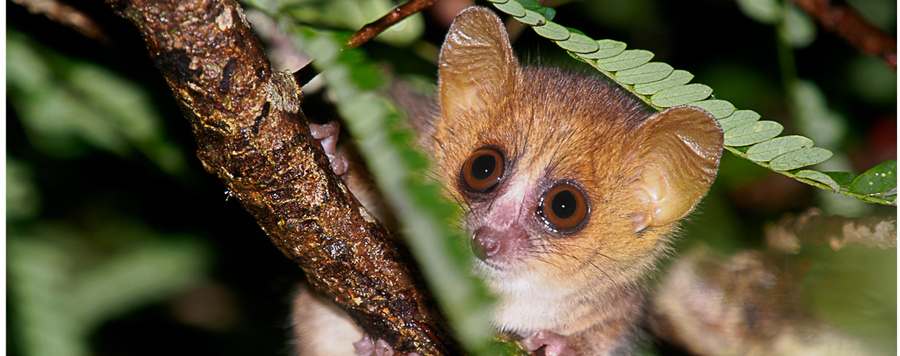
Microcebus berthae (Rasoloarison et al. 2000)
Microcebus berthae, with a body mass of 31 g and a head-body length of 9.0–9.5 cm, is the smallest of the mouse lemurs and very likely the world’s smallest primate. It was discovered in 1992 in dry deciduous forest of the the central Menabe region of western Madagascar.
Microcebus berthae was classified as Endangered by the IUCN in 2011. The extent of occurrence covers less than the remnant forest cover of 710 km² and the area of occupancy is considerably smaller than previously assumed based on geographic range borders. The geographic range is severely fragmented, and its extent of occurrence, area of occupancy, and the quality of its habitat are all declining. The species is threatened mainly by slash-and-burn agriculture and logging, and is particularly sensitive to anthropogenic disturbances. Sensitivity to fragmentation is evident as the species is only found in core areas of extensive forests, and the regional distribution pattern reveals susceptibility to habitat degradation and spatial avoidance of human environments.






